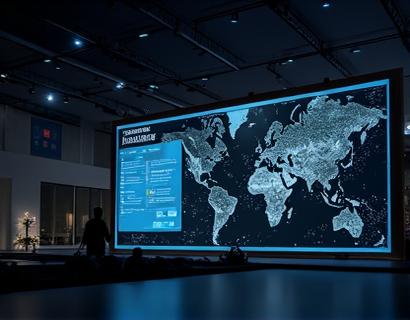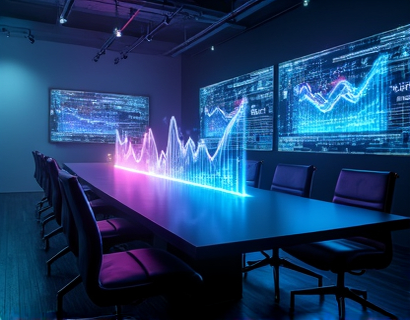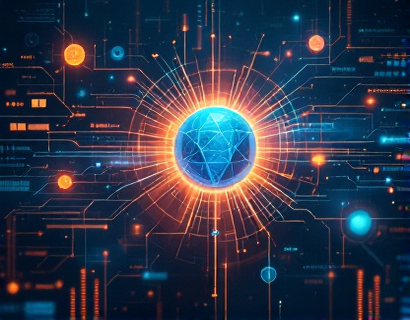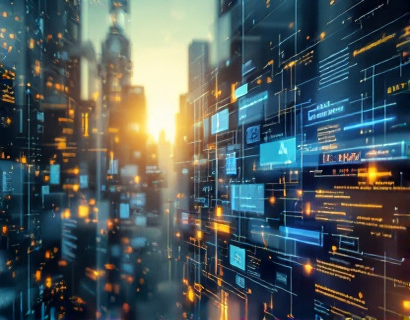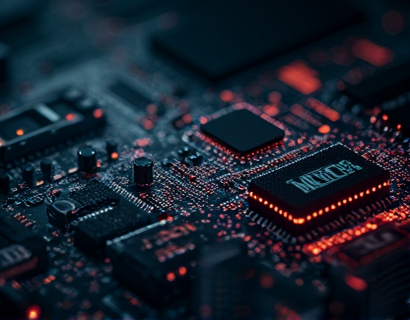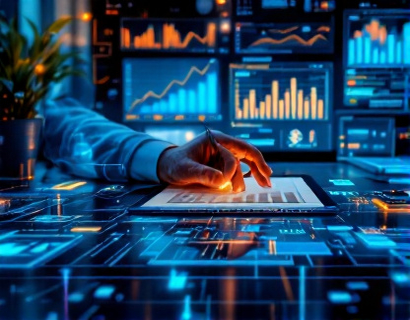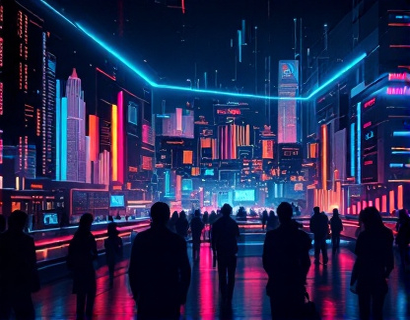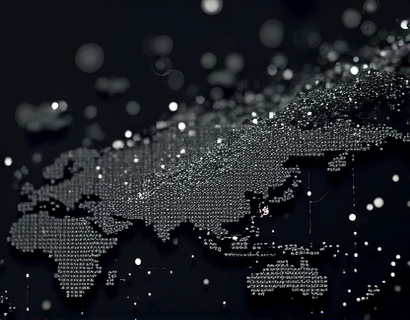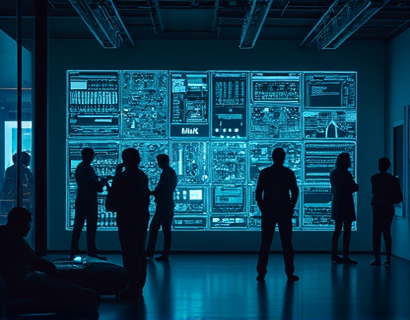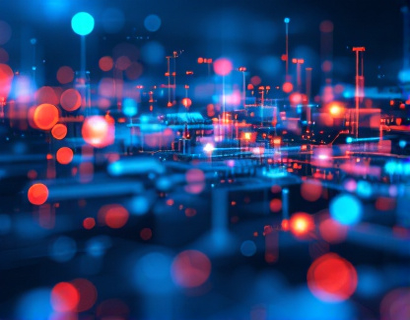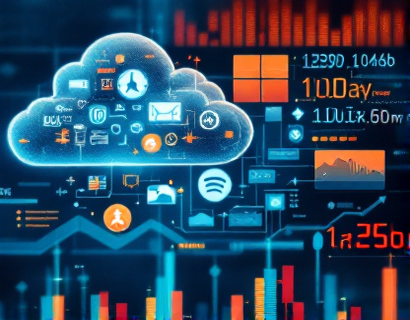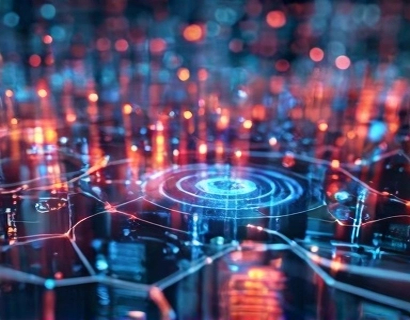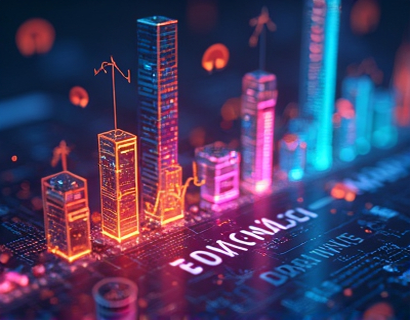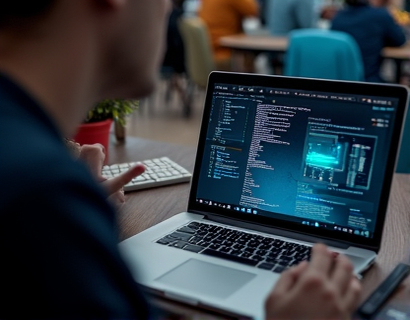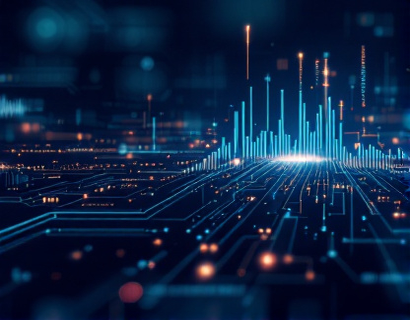Decentralized Productivity: Unleashing Next-Gen Potential with AI and Crypto Integration
The integration of artificial intelligence (AI) and cryptocurrency is ushering in a new era of productivity tools and decentralized applications. This transformation is not just about enhancing efficiency but redefining how we interact with technology. The convergence of these two cutting-edge technologies is creating a landscape where users can leverage decentralized ecosystems to streamline tasks, boost productivity, and enjoy a more secure and transparent digital experience.
Decentralized applications, or dApps, operate on blockchain networks, which inherently offer a level of security and transparency unmatched by traditional centralized systems. When AI is integrated into these dApps, the potential for innovation and efficiency becomes immense. This article delves into how AI and cryptocurrency are reshaping productivity tools, offering insights into the next generation of decentralized app ecosystems that are set to revolutionize the way we work and interact with digital solutions.
Understanding Decentralized Productivity
Decentralized productivity refers to the use of decentralized technologies to enhance and streamline various productivity tasks. Unlike traditional centralized applications that rely on a single server or company for operation, decentralized applications distribute data and processing across a network of nodes. This distribution not only enhances security by eliminating single points of failure but also promotes transparency and user control over data.
The decentralized nature of these applications means that users are not at the mercy of a central authority. Transactions and data exchanges are recorded on a blockchain, providing an immutable and verifiable record. This is particularly beneficial in productivity contexts where data integrity and user privacy are paramount.
AI in Decentralized Ecosystems
AI plays a crucial role in enhancing the functionality and user experience of decentralized applications. By integrating AI, dApps can automate complex tasks, provide personalized recommendations, and offer intelligent insights. For instance, AI-driven chatbots can handle customer support within a decentralized platform, ensuring quick and efficient responses without the need for human intervention.
Moreover, AI can optimize the performance of decentralized networks by managing resource allocation, predicting user behavior, and enhancing security measures. Machine learning algorithms can detect anomalies and potential threats, thereby strengthening the overall security of the ecosystem. This synergy between AI and decentralization creates a robust and intelligent environment that is both efficient and secure.
Enhanced User Experience through AI and Decentralization
The combination of AI and decentralization significantly improves user experience. One of the key benefits is the reduction of friction in user interactions. AI-powered interfaces can adapt to user preferences and behaviors, providing a more intuitive and personalized experience. For example, a decentralized project management tool can use AI to prioritize tasks based on user habits and project deadlines, ensuring that users focus on the most critical activities.
Another aspect is the enhancement of accessibility. Decentralized applications can be accessed from anywhere in the world, as long as there is an internet connection. AI can further improve accessibility by providing multilingual support and adaptive interfaces for users with disabilities. This inclusivity ensures that a broader range of users can benefit from the advanced features of these applications.
Efficiency and Automation in Decentralized Workflows
Efficiency is a cornerstone of decentralized productivity tools. AI-driven automation can significantly reduce the time and effort required to complete tasks. For instance, smart contracts, which are self-executing contracts with the terms directly written into code, can automate various business processes. When integrated with AI, these smart contracts can make decisions based on predefined conditions, further streamlining workflows.
Consider a decentralized supply chain management system. AI can predict demand, optimize inventory levels, and automate orders through smart contracts. This not only reduces manual intervention but also minimizes errors and delays. The transparency provided by blockchain ensures that all parties have real-time access to accurate and up-to-date information, enhancing trust and collaboration.
Security and Trust in Decentralized Productivity
Security is a critical concern in any productivity tool, and decentralized applications fortified by AI offer enhanced protection. The decentralized nature of these systems means that data is not stored in a single vulnerable location. Instead, it is distributed across multiple nodes, making it much harder for malicious actors to compromise the system.
AI enhances security by continuously monitoring the network for suspicious activities and potential threats. Machine learning algorithms can identify patterns that indicate a security breach and trigger immediate responses to mitigate risks. This proactive approach to security ensures that users can trust the integrity and safety of their data within the decentralized ecosystem.
Case Studies and Real-World Applications
Several projects are already leveraging the power of AI and decentralization to create innovative productivity solutions. One notable example is a decentralized cloud storage service that uses AI to optimize data storage and retrieval. The AI algorithm analyzes usage patterns and dynamically allocates storage resources, ensuring efficient use of bandwidth and cost savings for users.
Another example is a decentralized collaboration platform that integrates AI-driven tools for project management, communication, and document editing. Users can seamlessly work together on projects, with AI assisting in task allocation, real-time translation, and automated document summarization. This not only enhances collaboration but also accelerates project completion times.
Challenges and Future Prospects
Despite the numerous benefits, the integration of AI and decentralization in productivity tools is not without challenges. One of the primary hurdles is the technical complexity involved in building and maintaining these systems. Developers need a deep understanding of both AI and blockchain technologies to create robust and user-friendly applications.
Another challenge is the regulatory landscape. As decentralized applications operate across borders, navigating varying legal frameworks can be complex. However, the transparency and immutability of blockchain can also aid in compliance and regulatory adherence.
Looking ahead, the future of decentralized productivity is promising. As more developers and businesses recognize the potential of AI and decentralization, we can expect to see more innovative solutions emerge. The continued advancement in AI algorithms and blockchain technology will further enhance the capabilities of these applications, making them more accessible and powerful.
Conclusion
The integration of AI and decentralization is transforming the landscape of productivity tools, offering unparalleled efficiency, security, and user experience. By leveraging the strengths of both technologies, decentralized applications are setting a new standard for how we work and collaborate in the digital age. As the ecosystem continues to evolve, the potential for innovation and growth is vast, promising a future where technology serves us more intelligently and securely.



